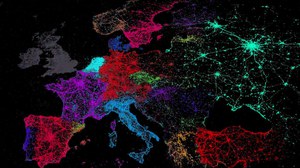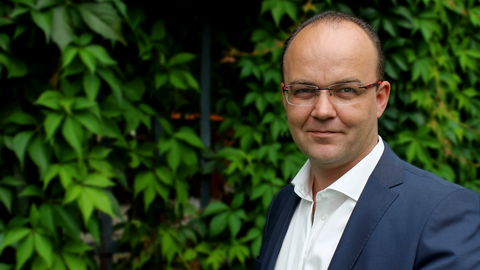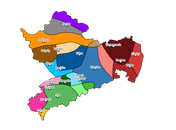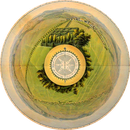 © Eric Fischer
© Eric Fischer
Linguistics and history of German language
The linguistics and history of German language concludes a broad matter of subject. It is both modern and historically conscious, both rich in perspective and focused, and just as theoretical as practical. Nevertheless German language is always centerpoint of our interest. Some issues are close to linguistics of different languages, for instance if they are about fundamental problems of grammar. Here you ask questions like these: What is grammar and how is grammar written? Over the next few years language-use-based approaches, like the construction grammar, will prevail. It has its roots among the Cognitive grammar, which handles questions of language acquisition and change of language more than normalizing, rule based grammars.
Linguistic historical perspective is essential to understand the present language use. Therefore History of German from Old High German to presence is another focus of our teaching and research. Usages of language are changing, not stable. What we know as 'language' is only the objectified size of language usage by individual speakers who are communicating. One must be clear about that, when one uses metaphors like 'organism language': A language does not live, but it is living used by its speakers. If we are about to specify change of language more precisely, we ask about factors, which control language Usage of individual speakers conciously or unconciously.
The German language is handed down written for about 1300 years. Insofar we are able to observe huge changes across several epochs (from the early middle ages to 19th century). In turn those changes sharpen the view to the contemporary language, because every historical interpretation does also explain phenomenons of the present day language. Also for the studies of history of literature the dealing with stages of language is fundamental.
Theoretical perspectives to the contemporary language German:
- Cognitive linguistics: Theory of language and grammar (Construction grammar), Frame semantics, changes of language and constructions, language acquisition,
- Neurolinguistics and psycholinguistics: Language production and language procession,
- Pragmatics und sociolinguistics: Language usage and communication.
Content and matter: The German language in historical stages and presence:
- Subsections of grammar (Phonology, Graphematics, Morphology/Word formation, Syntax),
- Epochs of the German language der deutschen Sprache (Old High German, Middle High German, Early New High German and New High German),
- Variants of the German language (socially: youth language, spatially: Dialects and regional languages, functional: medial languages),
- Lexikology, Semiotics und Semantics,
- Text linguistics and conversation analysis,
- Discours analysis,
- Language and culture.
At research and teaching we are especially striving to pick up application-related issues, that bring research, teaching and application together at the intersection of science and publicity. We are committed to these domains:
- Digital Humanities
- Corporate communication
- Forensic linguistics
- Accessible communication
We pay special attention to the Digitization in humanities. This does not only mean the digitization of data but the Usage of the following principles in research and teaching: Collaborations with the aid of all technical possibilities (Bring Your Own Device) and Transparency and openness of research data and results (Open Access, Open Educational Resources).





